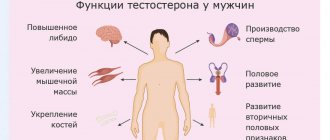Stress is the body's reaction to a potential threat, which may be associated with physical and psychological factors. Learn about the role of cortisol in stress and how to reduce cortisol.
Cortisol is one of the hormones produced by the adrenal cortex. It is involved in many metabolic processes, for example, helping regulate blood pressure and blood sugar levels. In addition, it plays a role in the process of waking up after sleep. When you wake up, hormone levels rise, peaking after 30 minutes, and then gradually decline throughout the day.
What are circadian rhythms and how to use them to get enough sleep
Cortisol is also called the "stress hormone." When your body senses a threat, physical or psychological, your brain sends a signal to your adrenal glands and they respond by releasing cortisol. Thanks to this hormone, concentration improves, blood circulation and glucose synthesis increase - this helps the body release additional energy to more effectively overcome stress.
Despite the benefits of cortisol, frequent or prolonged increases in cortisol levels can be harmful to the body. For example, chronic stress causes cortisol dysfunction, which leads to inflammation, depression and accelerated cellular aging. It is also associated with the development of osteoporosis, muscular dystrophy and decreased antitumor immunity.
Why cancer develops: 13 main risk factors
Chronic stress results from repeated exposure to situations that lead to the release of stress hormones, including cortisol.
We've rounded up nine science-backed ways to naturally reduce cortisol and manage stress. This way, your body will be less likely to experience a state of mobilization to eliminate a potential threat.
This article is for educational and informational purposes only and should not be used for diagnosis or treatment or as a substitute for professional advice.
Identify stress triggers
A threat to life or a change in environment are stimuli that provoke anxiety and can become a trigger or stressor. Such irritants include physical pain, problems in relationships or at work, and financial difficulties. It is, of course, impossible to predict when you will hit your foot on a chair. But some types of triggers can be learned to recognize.
5 reasons why health and well-being depend on love
One of the first steps to relieve stress is to understand what causes it. I don’t want to remember or think about unpleasant situations again. But a stress diary will help you recognize irritants so you can learn to react less to them. It is not necessary to remember all the details of an unpleasant event - it is enough to write down the fact and try to analyze why what happened caused you a negative reaction.
Using a stress diary can help you find practical ways to deal with these situations. For example, avoid quarrels, learn to build personal boundaries in relationships and at work, and say “no” in time. Moreover, you will be able to identify hidden causes of stress such as hanging on social networks.
Learn to recognize thoughts that cause stress
Thinking about negative and traumatic events is a trigger for the synthesis of cortisol. British scientists conducted a study in which participants wrote down their most negative memories for 20 minutes over three days. The results showed that it caused high cortisol levels in participants. Scientists link this to long-term consequences for the entire body.
The scientific community also highlights the role of worry and dwelling on negative thoughts in stress levels. It has been proven that negative thinking not only increases cortisol levels, but also has a negative effect on the production of oxytocin, a hormone that calms the nervous system.
Mental practice or mindfulness is one way to combat negative thinking and helps reduce cortisol levels. Hungarian scientists conducted a meta-analysis of ten studies on the connection between meditation and stress hormone levels. The results showed that meditation has a positive effect on people living in stressful conditions, but especially on patients with depression and post-traumatic stress disorder.
When should you contact Altimed MC?
It is necessary to seek qualified help when characteristic symptoms appear. The main signs of elevated cortisol :
- Rapid weight gain, mainly on the face, chest and abdomen.
- Flushed and round face.
- High blood pressure.
- Osteoporosis.
- Skin changes (such as bruising and purple stretch marks).
- Muscle weakness.
- Anxiety, depression or irritability.
- Increased thirst and frequent urination.
You may also experience increased body hair growth or trouble sleeping (as cortisol affects the body's sleep-wake cycle). Elevated stress hormones in women can include decreased sex drive and menstrual irregularities.
If you have elevated cortisol symptoms , which are described above, contact us at the Altimed Medical Center.
Pay attention to the quality of your sleep
It is easier for a person who has had a good night's sleep to cope with the effects of stress and unpleasant situations. The quality and duration of your sleep depends largely on your circadian rhythms and habits. What time you go to bed and wake up also plays a role. Research shows that people who work night shifts and sleep during the day are more likely to have elevated cortisol levels.
How to fix your biological clock so you can sleep well and get enough sleep
Shift work before age 40 is associated with higher body mass index (BMI) and higher cortisol levels.
Cortisol may be elevated due to lack of sleep or insomnia, especially in the evening after lack of sleep. The hypothalamic-pituitary-adrenal system is responsible for the production of cortisol. When a threat to the body appears, the hypothalamus part of the brain synthesizes special substances that are sent to the pituitary gland. This in turn sends a signal to the adrenal glands. In response, the adrenal cortex produces cortisol, some of which returns to the brain, affecting thinking processes. This relationship between the brain and the kidneys is called the hypothalamic-pituitary-adrenal axis.
The hypothalamic-pituitary-adrenal axis is also responsible for regulating sleep cycles. The axis can be activated by stress, illness or poor nutrition. This can subsequently impair your sleep and increase cortisol.
Sleep hygiene is one of the decisive factors in its quality. Try to create conditions in which the amount of noise and light is minimal. Thick curtains, an eye mask, and earplugs will help with this. We wrote about this in detail in this article.
6 ways to improve your sleep patterns and overcome insomnia
Tips for improving sleep quality to reduce cortisol levels:
- Try to go to bed and wake up at the same time
- Wash bedding and sleepwear regularly - a fresh smell helps the body relax
- Try not to use devices that emit blue light (TV, phone, tablet) 2-3 hours before bedtime
- Avoid caffeinated drinks in the afternoon
- Avoid excessive strength and cardio exercises two hours before bed.
Exercise regularly
Exercise can either increase or decrease cortisol levels, depending on the duration and intensity of the exercise. Despite the benefits of playing sports, it is still a burden and stress for the body. Therefore, as a result of intense exercise, cortisol usually rises briefly, but then falls at night.
At the same time, moderate-intensity exercise does not lead to an increase in stress hormone levels. Like intense exercise, moderate exercise is associated with decreased nighttime cortisol levels.
How exercise improves microbiota
Regular exercise can help control cortisol levels. And in addition to reducing the stress hormone, sport has a good effect on the microbiota. But it's best to avoid strenuous evening workouts that will keep you awake. Physical activity isn't just good for your body—many doctors recommend it for improving your mental health, too.
References
- Belaya, Zh.E., Rozhinskaya, L.Ya., Melnichenko, G.A. Modern view on screening and diagnosis of endogenous hypercortisolism. Problems of endocrinology, 2012. - V. 4. - P. 35-41.
- Federal clinical guidelines. Itsenko-Cushing's disease: clinical picture, diagnosis, differential diagnosis, treatment methods. Russian Association of Endocrinologists, 2014.
- Wilson, D. McGraw-Hill Manual of Laboratory and Diagnostic Tests 1st Ed Normal, 2007.
- Dorn, L., Lucke, J., Loucks, T. et al. Salivary cortisol reflects serum cortisol: analysis of circadian profiles. Ann Clin Biochem, 2007. - Vol. 44(3). — P. 281-84.
- Nicolson, N. In L. J. Luecken and L. C. Gallo. Measurement of Cortisol. In: Handbook of Psychological Research Methods in Health Psychology. Sage Publications, 2008, pp. 37–74.
Find something you like
Learning to relax is really helpful, especially if you want to manage stress. Taking up a new hobby is one way that can also help you learn a new skill. It doesn't matter what you do, as long as you enjoy it.
Photo by Steve Johnson / Unsplash
American scientists conducted a study of 50 former combatants who suffered from depression, post-traumatic stress disorder or substance abuse. They spent a month doing gardening and occupational therapy. The results showed a decrease in stress and a decrease in cortisol.
Think about what kind of activity you would like - perhaps drawing, music or gardening.
Laugh more often
Laughter is good not only for the soul, but also for the body. It is a natural way to overcome stress and reduce cortisol levels. A study published in 2008 showed that even the anticipation of laughter leads to a decrease in blood levels of cortisol, as well as two other stress hormones - adrenaline and norepinephrine.
Laughter not only reduces stress hormone levels, but also blood pressure.
If you are having a fun and interesting time, you are unlikely to experience extreme stress at the same time. That's why it's so important to plan your time and visit interesting places and events.
Complexes with this research
Three important indicators for a man Diagnosis of problems of the reproductive system 1,810 ₽ Composition
Anti-aging diagnostics in postmenopause Control of age-related changes during the postmenopausal period 12,630 ₽ Composition
Metabolic profile 5,900 ₽ Composition
IN OTHER COMPLEXES
- Stress complex 4,310 RUR
- Female infertility RUB 16,210
- Women's anti-aging diagnostics RUB 12,070
- Adrenogenital complex RUB 2,560
- Advanced male anti-aging diagnostics RUB 33,710
Communicate with animals
It has been scientifically proven that contact with animals is associated with reduced cortisol levels. Scientists have studied how interaction with animals affects stress, and found that long-term interaction with dogs, even strangers, as well as owning a pet, have a positive effect on cortisol levels. In addition, the interaction between a person and a dog increases the level of oxytocin in both.
Photo by Vitalie Sitnic / Unsplash
Having pets is associated not only with reduced stress levels, but also with other health benefits. It is easier for owners of cats, dogs, parrots and other pets to focus their attention. Animals also have a positive effect on blood pressure and help avoid feelings of loneliness.
Add cortisol-lowering foods to your diet
Nutrition affects not only metabolic processes in the body, but also the level of cortisol. Some foods, such as sugar, can increase the amount of stress hormone.
The chemicals neurotransmitters are responsible for transmitting signals to the nervous system and controlling mood. And hormones and food are responsible for their production.
How to Reduce Cortisol with Nutrition
Foods rich in polyphenols help reduce stress hormone levels. For example, the long-term health benefits of drinking green tea are scientifically proven - drinking just half a glass a day reduces the risk of depression and dementia.
The Complete Guide to Polyphenols
Eating foods from the table below will help control your cortisol levels:
| Food | Beverages |
| Bananas | Black tea |
| Dark chocolate | Green tea |
| Plant fibers | Probiotics (yogurt) |
| Probiotics (sauerkraut) | Water |
It should be remembered that eating stress brings only temporary relief and can lead to eating disorders, excess weight gain and problems with blood sugar. During times of stress, try to choose foods containing plant fiber - fiber provides a feeling of fullness for a long time and regulates blood sugar levels.
Regular sugar consumption is associated with long-term high cortisol levels, and is associated with a higher risk of heart disease in overweight men.
Probiotics
The gut microbiota contains trillions of bacteria that are beneficial to your health. They strengthen the intestinal lining, fight inflammation, regulate the immune system and even mental health. This is why it is important to take care of the composition of your gut bacteria.
Among the inhabitants of the intestinal microbiota are probiotic bacteria that reduce cortisol levels and, accordingly, stress. Among them are the bacteria Lacticaseibacillus rhamnosus and L. farciminis.
Probiotic foods help maintain healthy gut bacteria. Fermented milk drinks like kefir and yogurt, as well as fermented foods like kimchi, contain certain strains of probiotic bacteria. They help reduce cortisol levels caused by stress. Research shows that one Lactobacillus strain, L. plantarum 299v, reduces exam stress in patients with irritable bowel syndrome (IBS).
Irritable bowel syndrome: how does stress affect digestion?
Using the Atlas Microbiota Test, you can learn about the bacterial diversity of your gut, as well as assess the level of probiotic bacteria.
What is cortisol responsible for?
Cortisol is a hormone that has gotten a bad rap. Thus, it is often blamed for insomnia, fat accumulation and the destruction of muscle mass. The hormone does have this effect, but only if it is produced in too large quantities. In moderation, it is vital for our body. Its main task is to adapt the body to changing environmental conditions.
Cortisol performs several important functions in our body:
- regulates blood glucose levels;
- supports the nervous system;
- activates brain activity;
- controls blood pressure;
- protects against infections.
It is under the influence of cortisol that gluconeogenesis occurs - the process of glucose formation in the liver. That is, the hormone is responsible for providing the body with the energy necessary for life. In a healthy person, the highest concentration of cortisol is observed in the morning. That is why in the morning we feel cheerful and full of energy. In the evening, hormone production gradually decreases, and with it our productivity drops, we feel tired and quickly fall asleep.
Normally, a healthy adult produces cortisol in amounts ranging from 15 to 30 mg per day.











